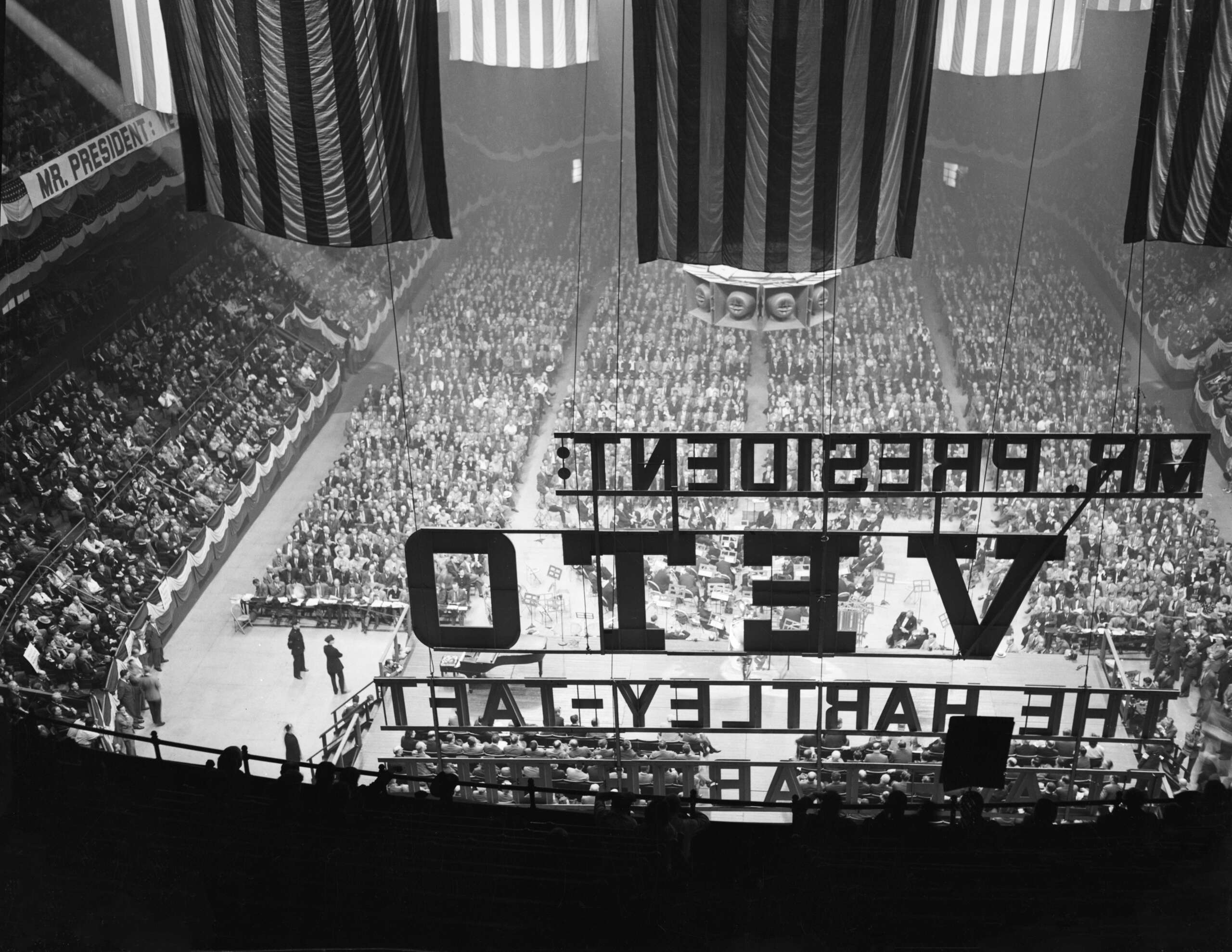
"Taft-Hartley began a long-term strategy aimed at isolating and weakening organized labor, restricting unions' bargaining scope, political activity, and legal tactics."
"The law shifted public perception of unions from agents of broad economic change to narrow, service-oriented entities, limiting their impact on social issues."
The Taft-Hartley Act, enacted on June 23, 1947, overrode a presidential veto and was introduced to combat the rise of organized labor during postwar strikes. The legislation equipped employers with new legal tools to undermine unions, limiting their negotiating capabilities, curtailing political activities, and confining their operational tactics. Its enduring provisions have led to a perception of unions as service-oriented rather than as advocates for broader socio-economic change. As a result, the act has significantly hindered workers' collective power in the decades since its passage.
Read at Truthout
Unable to calculate read time
Collection
[
|
...
]